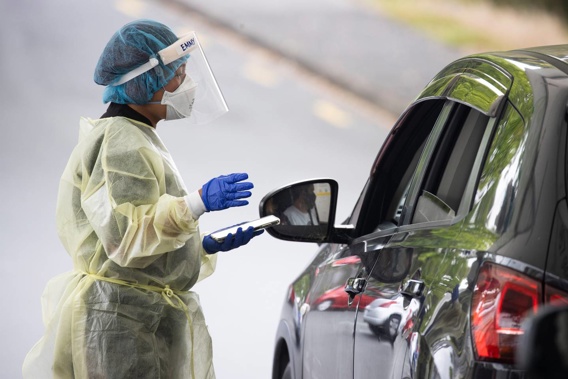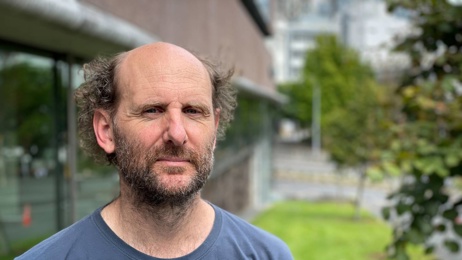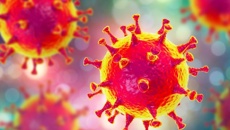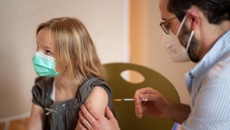
Ten more people have died and there are more than 18,500 new case of Covid in the community.
This takes the death toll of publicly reported Covid related deaths to 166, and the 7-day rolling average of reported deaths to 8, the Ministry of Health said.
The seven-day rolling average of new cases is 17,641, down slightly from 17,673 yesterday.
It comes after public health expert Michael Baker said cases had peaked in almost all district health boards.
And those that hadn't, would soon, the University of Otago epidemiologist said.
More than 14,100 community cases were reported around the country yesterday, down from the rolling seven-day average of 17,673.
There were five new Covid-related deaths, taking the toll since Covid arrived in New Zealand more than two years ago to 156.
The number of people in hospital with the virus yesterday was 943, including 25 in intensive care.
Case numbers had fallen across all district health boards yesterday, Baker said.
"That's the first time we've seen that. It looks like every DHB in New Zealand has now passed its peak - or if they haven't, they're very close to it."
Auckland still has the highest number of new cases, with 3498 yesterday, Waikato had 1333, Bay of Plenty 956, Hawke's Bay 841, Capital and Coast (Wellington area) 906, Canterbury 1937 and Southern (Otago/Southland) 890.
Northland, Lakes, Midcentral, Taranaki, Hutt Valley and Nelson Marlborough had between 416 and 599 cases.
Whanganui was at 205, Tairāwhiti 232, Wairarapa 164 and South Canterbury 135, while the South Island's remote West Coast had 39 new cases. The location of six cases was unknown.
Overall case numbers were expected to jump around a bit, University of Auckland associate professor Dr Collin Tukuitonga said.
"The problem is, not everyone is testing and not everyone who is testing is reporting [their results], and that's part of the reason why it will bounce around. I wouldn't get too excited about the rest of the country, because it may well bounce around for a while.
"But I have some confidence that the numbers in Auckland are indeed dropping."
There have been increasing calls for changes to traffic light restrictions and vaccine pass mandates as case numbers fall.
It was time to scrap vaccine passes for all but large, indoor events, National Party leader Christopher Luxon said yesterday.
He also wanted all scanning requirements dropped immediately, along with vaccine mandates for under 18s, and for the current seven-day isolation period for Covid-19 cases and their household contacts to switch to five days.
Passes and the mandates had created division in New Zealand, and made life tough for those who opted not to be vaccinated, Luxon said.
Omicron had changed the game and the risk profile no longer warranted them, he said.
They would also be difficult to enforce once the border opened to vaccinated visitors, first to Australians on April 12 and then to those from visa-waiver countries on May 1.
Prime Minister Jacinda Ardern said yesterday as the Omicron outbreak plateaued, the Government was working on reshaping the protection frameworks.
Auckland was currently plateauing, while modelling for the rest of the country showed it happening at the end of March, she said.
But she also warned of "future peaks" on the horizon, particularly in the winter months, and the threat of new variants.
Baker expected by May New Zealand would have probably "come down the other side of the major pandemic wave" and could be in a situation to relax the use of control measures in various ways.
"We won't be back to the baseline that we've been used to for the last two years of very low cases. It will be a new baseline of quite high numbers [in the thousands].
"That's why we will need to think very hard about what mix of tools from that we do need to keep going."
The toolkit should include a border biosecurity system that potentially included purpose-built quarantine facilities; a successor to the traffic light system/alert level system that provided a framework for organising control measures for a full range of current and future pandemic scenarios.
Vaccine passes should also be kept for to support situations where individuals needed evidence of vaccination status, such as international travel and potentially high-risk environments like aged-care facilities; and refined vaccine mandates for agreed workforce groups in areas such as health, aged care and first responders.
New Zealand also needed an enhanced public health infrastructure – which included the already in development Māori Health Authority and a Public Health Agency – as well as a national pandemic response centre to continue co-ordinating the Covid-19 responses with capacity for managing future major public health emergencies.
As of yesterday, 95 per cent of New Zealanders had received two doses of the Covid vaccine and 72.8 per cent of those eligible had been boosted.
Of children aged 5-11, 53.6 per cent had received one dose of vaccine. For Māori and Pacific children, these figures were 34.3 per cent and 46.4 per cent, respectively.
Take your Radio, Podcasts and Music with you









